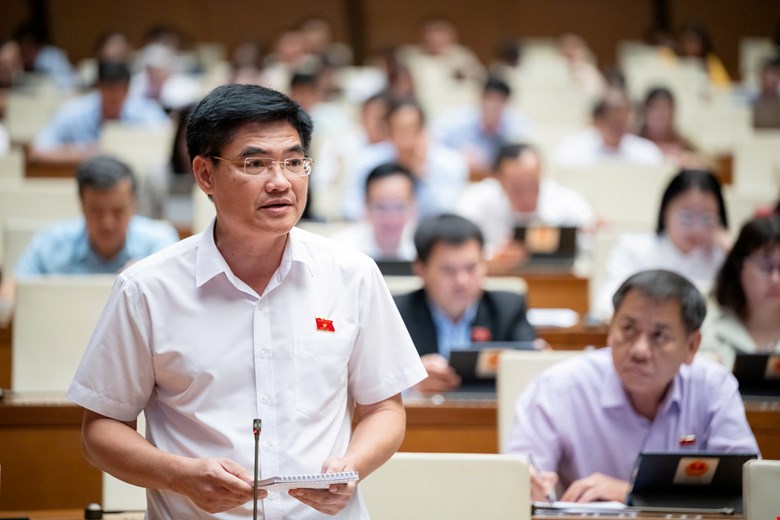From the case of FLC, AIC, Viet A, Tan Hoang Minh...: Don't let assets be wasted
On the morning of November 9, the National Assembly discussed in the hall the draft Resolution on piloting the handling of evidence and assets during the investigation, prosecution and trial of a number of criminal cases.
Delegate Nguyen Thanh Hai (Thua Thien Hue Delegation) said that law enforcement practice shows that the Criminal Procedure Code has fully and specifically regulated the order, procedures and procedural activities in each stage, which is a sharp and effective tool in the fight against crime.
However, according to the delegate, currently, some regulations on handling evidence still have many difficulties, problems, and inadequacies that need to be studied, revised, and supplemented. The reason why these regulations have not been adjusted in time is an objective necessity due to the speed of regulation, the scale of socio-economic development, and economic integration.
In particular, in recent times, under the leadership of the Party, the Central Steering Committee on preventing and combating corruption, waste and negativity has discovered and handled many particularly large corruption and economic cases of great scale and nature.
The seizure, temporary detention, and blockade amount to many thousands of billions of VND. Many real estate projects and assets such as the case of Phan Van Anh Vu (Vu Nhom), FLC, AIC, Viet A, Tan Hoang Minh...
Meanwhile, the handling of the case has to wait for the time to proceed with the proceedings for years, leading to the freezing of evidence and seized assets. This can lead to wasted resources, lost business opportunities, and loss of asset value.
In some cases, the verification and investigation process discovered that there were many cases where it was necessary to apply measures to prevent the holder of assets related to the crime from dispersing or transferring those assets, but the law does not provide for measures to temporarily suspend transactions.

Proposal to pilot all criminal cases
Delegate Nguyen Huu Chinh (Hanoi Delegation) said that in reality, many major cases are complicated and take a long time to investigate, some cases last from 1-2 years or even more. By the time the court resolves the case, the evidence, including factories, equipment, machinery, and vehicles, is almost completely broken, unusable, and is just a pile of scrap metal, causing waste and great damage to the parties involved.
In particular, in current cases related to commercial bank lending, such as the Tan Hoang Minh case, the defendant paid and recovered more than VND 8,000 billion to the victim immediately after the case was initiated. He could have paid the victim immediately, but according to regulations, the above amount must be deposited in the treasury.
Meanwhile, the investigation period is 2 years for the court to resolve, which causes frustration and huge losses when money is not circulated.
According to the delegate, the pilot handling of evidence and assets should not be limited to a number of corruption cases under the supervision of the Central Steering Committee as in the draft, because in practice and according to annual statistics, the number of corruption cases accounts for a very small proportion, from 10-15% compared to normal cases, while the amount of evidence seized and attached in normal criminal cases is very large. If the pilot is only in the field of corruption cases, it will only be partly correct and will not change the existing situation.
Currently, the physical evidence warehouses of the police agencies of provinces and cities are very overloaded, causing difficulties and waste in supervision and preservation. The purpose and significance of the pilot handling of physical evidence in criminal cases is to minimize waste and damage to the parties when physical evidence is seized or confiscated. Therefore, the delegates proposed to pilot all criminal cases.











